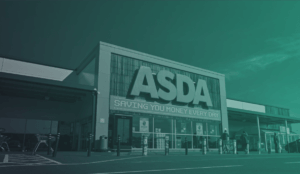Though Covid-19 disrupted life and business and we know it, the pandemic also inadvertently enabled us a head start to reduce our carbon footprint. Globally, greenhouse gas emissions dropped by 6.4% as countries ordered their citizens to stay home. Maintaining this step ahead of the game is only the start.

In the Middle of Difficulty Lies Opportunity
The pandemic’s disruption to logistics was immense; as consumer demand for home-entertainment increased tenfold, production lines were grinding to unexpected halts. 2020 was already a year expected to be a challenge for the logistics sector thanks to trade wars between the US and China and preparations for a post-Brexit economy. Adding a global pandemic to the fire really shook things up. Vulnerabilities were brought to light as global supply systems experienced explosive disruption; providers of logistics solutions had to find their own logistics solutions to keep moving.
But among all the chaos lay opportunity. Many companies took time to review operations, instigating changes by embracing digitalisation and adopting advanced technologies. Sustainability efforts have effectively been fast-tracked as an accidental bi-product.
Did Someone Say Data?
It’s been recommended by The World Economic Forum that companies gain a ‘complete, end-to-end data set’ so that executives can trace products across the entire process from source to consumer. At the same time, they can measure and seek opportunities to reduce emissions as well as identify where products and packaging waste materials.
Employing artificial intelligence (AI) across a supply chain helps to make predictive decisions. By integrating data feeds from satellite providers, companies can predict anomalies in supply. If customer demand changes, an entire value chain can recognise the need to adjust supply plans and production accordingly, saving valuable time, energy, and cost.
The Road to Green
The pandemic allowed transport companies to show initiative to problem-solve; they partnered with other organisations to share capacity and meet pressuring demand. Empty miles are often regarded as one of the biggest sources of waste to supply chains. Loads are now better planned to reduce excess mileage, with routes smarter and optimised.
It’s not news that the real key to reducing emissions in the sector is the incorporation of environmentally-friendly vehicles. Though fully electrifying a fleet will significantly positively impact our environment, it’s still a relatively daunting change to make. Businesses need to remember that any investments in fleet renovation are always long-term; the UK government are offering initiatives like the Plug-In Grant to support such moves.
Even the big dogs in the last-mile delivery sector are shouting loud about integrating sustainable practices to their processes. Amazon, UPS, and DHL have all introduced new programmes and goals to their overall strategies, with Amazon pledging to be net-zero carbon by 2040.
And that’s not all. Almost every part of a transportation vehicle can be improved to better benefit the planet; for instance, lower resistance tyres, streamlined airflow, and reduction of drags all help to make fuel mileage more efficient, ultimately reducing the carbon footprint.
The Importance of Innovation
Our on-demand world has given rise to around-the-clock operations and distribution centres. As the expectation of receiving goods the very next day becomes the norm, there needs to be a real focus on making these 24/7, 365 facilities as green as possible. For instance, incorporating LED fixtures with automated photo sensors allows indoor lighting to be automatically adjusted when natural levels are high, saving both energy expense and waste.
Innovative practices that enhance daily operations are on the rise too. Take lithium-ion batteries, for example. Their high density and fast recharge times allow them to accommodate multiple shifts whilst reducing idle time. Most lithium-alternatives need backup batteries and specific charging areas; with lithium-ion, warehouse space is freed up for more storage and distribution. Often used in forklifts, their battery monitoring systems ensure they don’t negatively impact performance, even when power is running low. Through their active balancing modes, equal flow and receipt of energy between cells allows them to stay at the same voltage levels constantly. This optimises both performance and lifecycle; advanced lithium-ion batteries offer around an immense 4,500 charging cycles.
Balancing operations with environmental objectives needs to be at the forefront of logistics systems. Making an entire system eco-friendly has never been more accessible, or appealing. Both consumer and supplier awareness on sustainable practice is only growing, and the sector has a responsibility to rethink sourcing materials and energy supplies, as well as the true impacts of their activities. Can the logistics and supply chain sector take pole position?

Join us at our event, Becoming Greener: The Corporate Sustainability Summit, which is taking place at the Leeds Digital Festival on the 23rd of September 2021. Our sustainable guest speakers will arm you with a brand-spanking-new arsenal of sustainable behaviour to bring to your business. From the power of data to the new age of green tech, our speakers will deliver talks on the most cutting edge sustainable business activity to help you become greener.
Thinking of getting sustainable? Join us in September to learn how to get started!



